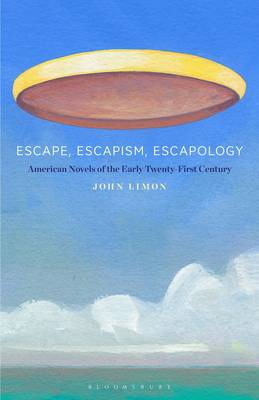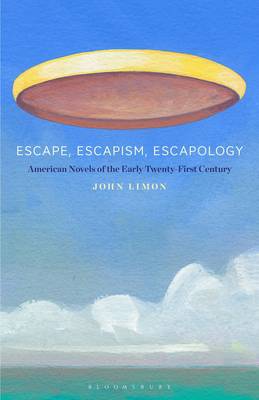
Bedankt voor het vertrouwen het afgelopen jaar! Om jou te bedanken bieden we GRATIS verzending (in België) aan op alles gedurende de hele maand januari.
- Afhalen na 1 uur in een winkel met voorraad
- In januari gratis thuislevering in België
- Ruim aanbod met 7 miljoen producten
Bedankt voor het vertrouwen het afgelopen jaar! Om jou te bedanken bieden we GRATIS verzending (in België) aan op alles gedurende de hele maand januari.
- Afhalen na 1 uur in een winkel met voorraad
- In januari gratis thuislevering in België
- Ruim aanbod met 7 miljoen producten
Zoeken
Escape, Escapism, Escapology
American Novels of the Early Twenty-First Century
John Limon
Hardcover | Engels
€ 161,45
+ 322 punten
Omschrijving
Escape, Escapism, Escapology: American Novels of the Early Twenty-First Centuryidentifies and exploreswhat has emerged as perhaps the central theme of 21st-century American fiction: the desire to escape-from the commodified present, from directionless history, from moral death-at a time of inescapable globalization. The driving question is how to find an alternative to the world within the world, at a time when utopian and messianic ideals have lost their power to compel belief. John Limon traces the American answer to that question in the writings of some of the most important authors of the last two decades-Chabon, Diaz, Foer, Eggers, Donoghue, Groff, Ward, Saunders, and Whitehead, among others-and finds that it always involves the faux utopian freedom and pseudo-messianic salvation of childhood.
When contemporary novelists feature actual historical escape, pervasively from slavery or Nazism, it appears in their novels as escape envy or escape nostalgia-as if globalization like slavery or Nazism could be escaped in a direction, from this place to another. Thus the closing of the world frontier inspires a mirror messianism and utopianism that in US novels can only be rendered as a performative, momentary, chiasmic relationship between precocious kids and their ludic guardians.
When contemporary novelists feature actual historical escape, pervasively from slavery or Nazism, it appears in their novels as escape envy or escape nostalgia-as if globalization like slavery or Nazism could be escaped in a direction, from this place to another. Thus the closing of the world frontier inspires a mirror messianism and utopianism that in US novels can only be rendered as a performative, momentary, chiasmic relationship between precocious kids and their ludic guardians.
Specificaties
Betrokkenen
- Auteur(s):
- Uitgeverij:
Inhoud
- Aantal bladzijden:
- 248
- Taal:
- Engels
Eigenschappen
- Productcode (EAN):
- 9781501391118
- Verschijningsdatum:
- 11/08/2022
- Uitvoering:
- Hardcover
- Formaat:
- Genaaid
- Afmetingen:
- 140 mm x 216 mm
- Gewicht:
- 430 g

Alleen bij Standaard Boekhandel
+ 322 punten op je klantenkaart van Standaard Boekhandel
Beoordelingen
We publiceren alleen reviews die voldoen aan de voorwaarden voor reviews. Bekijk onze voorwaarden voor reviews.









